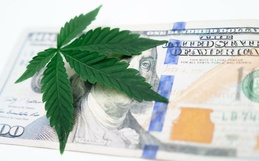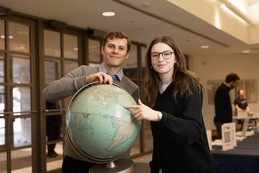Fairness, Opportunity, and Compassion
Guest Opinion
By Tom Gutowski | Feb. 22, 2020
Thirty-eight million Americans live in poverty. Those of us not among that number should stop lecturing these people about their values and start re-examining our own. The majority of poor who are able to work do so, but even with public assistance don’t make enough money to live what most of us would consider tolerable and reasonably secure lives.
The various anti-poverty programs do lots of good, but contrary to popular mythology, they don’t coddle the poor, and there are gaps. For example, food stamp benefits average about $1.40 per person per meal. Medicaid saves lives, but not all who need it qualify for it, and it doesn’t cover routine vision or dental for adults in many states. The Earned Income Tax Credit and Child Tax Credit lift many families with children out of poverty, but benefits are less generous for those without children, and one out of five people who qualify for the EITC don’t claim it.
Many of the poor — and some of those above the poverty level — are one hiccup away from homelessness. An illness or injury, a fire, getting one’s car towed, losing a job, even a roommate losing a job, can spell disaster. Huge numbers of Americans report skipping recommended medical tests or treatments due to the cost. Diabetics have died while trying to ration insulin. Thirty-seven million Americans are “food insecure.” A half-million people sleep on the street or in shelters every night; many of these people are employed but still can’t afford housing. Over 100,000 school children are “unsheltered homeless.” The suicide rate has risen by 40 percent in less than two decades, with blue collar workers and veterans the most heavily affected.
This situation is unacceptable. Even Adam Smith, the darling of those who worship at the altar of free markets and who often blame the poor for their own plight, said as much in his classic book “The Wealth Of Nations”:
“It is but equity … that they who feed, cloath [sic], and lodge the whole body of the people, should have such a share of the produce of their own labour as to be themselves tolerably well fed, cloathed and lodged.”
At the other end of the spectrum, the richest 1 percent of Americans own as much wealth as the bottom 90 percent. In 2018, 60 of the nation’s largest companies paid zero federal income tax on $79 billion in profits. Wall Street bonuses that year totaled $27.5 billion. The ousted head of Boeing, who presided over the 737Max fiasco, got $62 million in various benefits on his way out the door.
Why the extreme gap between rich and poor? Other than the “poor people are lazy” explanation, the two most often cited reasons are globalization and technological change. Globalization forces American workers to compete against lower paid workers in other countries, and advances in technology put a premium on technical education; those who don’t have it lose out. These explanations are true, but there’s much more to the story. Europe faces the same issues yet has substantially less inequality and more social mobility than the U.S.
To understand why poor people are poor, it helps to look at why rich people are rich. It’s all one integrated system. There is no totally free market operating by natural law wherein all participants magically get what they deserve, be it wealth, misery, or something in between. Governments set and enforce the rules of the market, and corporations and wealthy individuals use their wealth and influence to bend those rules in their favor.
That’s why drug prices are so high, why the minimum wage hasn’t been raised in years, and why there’s always money for corporate welfare or another war but not for universal healthcare. It’s why workers’ bargaining power and voice in corporate governance has severely declined. It’s why big agribusiness thrives while family farms go bankrupt. It explains the succession of massive tax cuts for corporations and the rich. It’s why some putatively not-for-profit charter schools generate huge profits for the companies that run them, at taxpayers’ expense. It’s why the “surprise medical bill” problem hasn’t been fixed. And it’s one of the reasons immigration laws are enforced against undocumented immigrants but rarely against companies that hire undocumented immigrants.
These sorts of things make it harder for those on the lower rungs of the economic ladder to pull themselves out of poverty. Of course, individual initiative is extremely important, but so is the tilt of the playing field and the quality of the officiating. We’ll never have, and ought never have, absolute economic equality. Successful innovators and risk takers deserve to reap financial rewards. But they also have an ethical obligation to pay a living wage, pay their share of taxes, and not use their wealth to seek unfair advantages over competitors or customers.
Instead of giving more money to the rich in the hopes that some of it will “trickle down,” we should rededicate ourselves to creating an economy characterized by fairness, opportunity, and compassion. The more energy we put into that, the less we have to invest in mitigating the effects of extreme inequality. Think of it not as a redistribution of wealth but as a redistribution of opportunity. Or maybe just common decency.
Tom Gutowski holds bachelor degrees in economics and history, and a masters and a PhD in history. He retired from the insurance industry a few years ago. A suggestion for further reading about poverty and its causes: “Tightrope” by Nichlos Kristof and Sheryl WuDunn.
Trending

Michigan’s Marijuana Tax at Work
Cannabis has become a big business in northern Michigan, and local governments are putting tax dollars earned from dispensar… Read More >>
California Sober: Why People Are Switching from Alcohol to Weed
They call it “California sober.” Generally speaking, this term applies to folks who use marijuana but abstain f… Read More >>
The Legacy of Student Activism
“It’s a physical letter to your representative,” Alex Tank says when asked to define the word “prote… Read More >>


